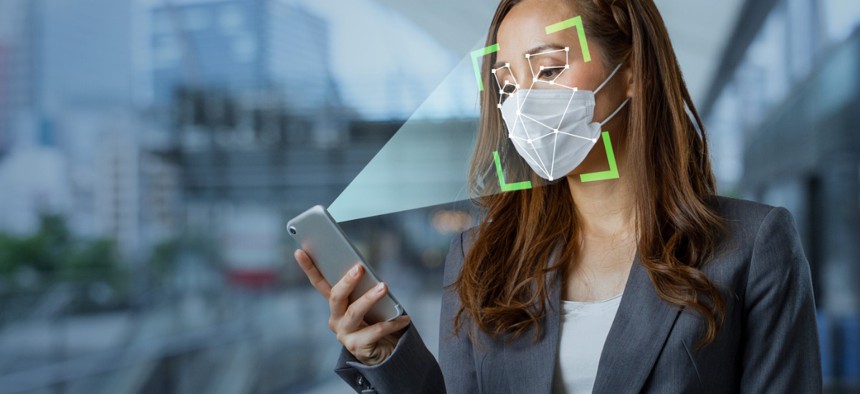DHS Plans Next Rally to Advance Facial Recognition Tech

metamorworks/iStock.com
Modern systems are getting good at verifying people who are wearing face masks—and DHS wants to make them better.
Biometric technology developers will soon get a chance to showcase their capabilities to government and industry stakeholders—and contribute to Homeland Security Department-led research to tackle complexities limiting existing tools for verifying people’s identities at security checkpoints.
DHS Science and Technology Directorate on Wednesday announced plans to host its 2021 Biometric Technology Rally at the Maryland Test Facility in Upper Marlboro in the fall.
Providers of face and multi-modal biometric acquisition systems and biometric matching algorithm-makers are encouraged by the agency to email peoplescreening@hq.dhs.gov to sign up for an informational webinar set for June 9. Applications are due July 15.
“In the past year, we have seen tremendous innovation from the biometrics industry to adapt to new challenges during the COVID-19 pandemic. We observed very strong performances from technology developers; especially in their ability to recognize individuals under previously challenging situations,” S&T’s Biometric and Identity Technology Center Director Arun Vemury said in a statement. “Now it’s time to see if further innovation and improvement can be achieved to further reduce errors and provide more consistent and equitable performance under challenging conditions.”
This event will mark the department’s fourth biometric rally.
The department’s release notes that the latest challenge will hone in on assessing systems’ abilities to reliably collect or match images of people—“including those wearing face masks.” Officials ultimately intend to boost the technologies’ aptness to recognize travelers whose faces are hidden mostly behind the protective accessories.
Reflecting on past rallies and still-ongoing research last December, Vemury told Nextgov that the department felt it was getting close to reaching a point where some combinations of biometric acquisition systems, the camera systems and the matching algorithms would be able to match eight out of 10 people without having them remove their masks. Almost 600 human volunteers participated in that event. Vemury said the department would continue to explore how capabilities can be improved when used on those with masks. Potentially, if the pandemic subsided, he noted, the next effort would involve evaluating biometrics systems’ abilities to process people in small groups.
DHS is not planning to process small groups at this time, Vemury confirmed to Nextgov in an email Wednesday.
“We are still interested in doing this in the near future,” he wrote. “This year we’ll perform a similar test to last year to see if more companies can improve and meet our target goals.”
During the coming rally, participants will have the opportunity to engage in a stakeholder demonstration day. All the data that’s collected during the scenario testing portion of the event will be used to assess the robustness of systems and matching algorithms.
The department aims to share feedback with the developers involved.






